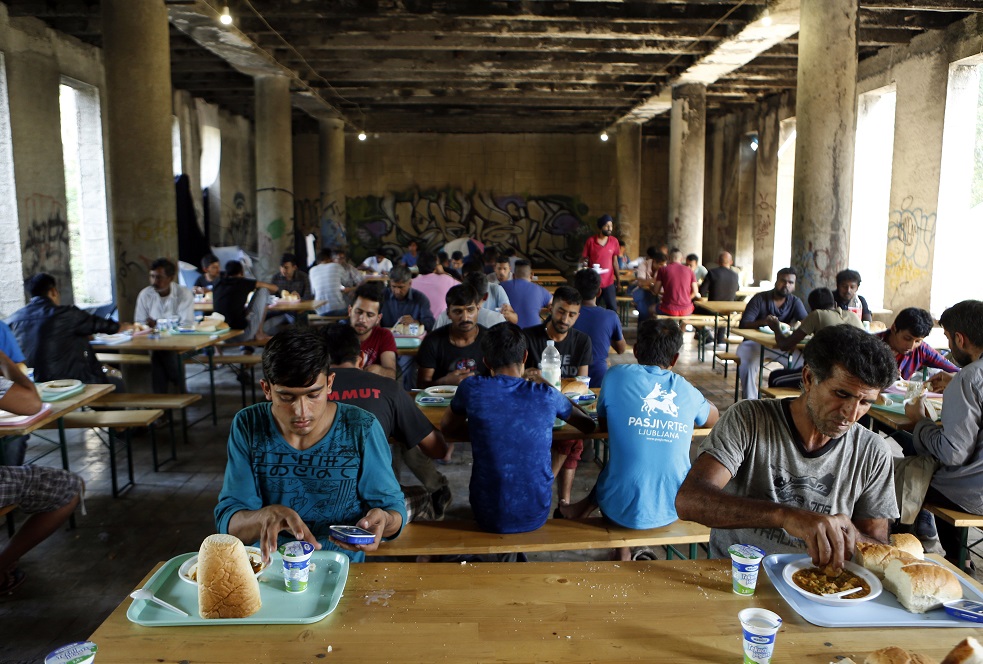The number of migrants who illegally entered the countries of the European Union via the so-called Balkan route from January to September increased by 170 percent year-over-year, the EU border agency Frontex revealed on Thursday.
It is the highest increase among the main migration routes to the EU for the aforementioned period.
In the first nine months of this year, 228,000 migrants were detained at the EU’s external border without a permit, the most since 2016.
The number of migrants who entered the EU illegally increased by 70 percent year-over-year from January to the end of September. The Balkan route shows the highest increase, followed by the Eastern Mediterranean countries where the numbers increased by 118 percent.
The route through the Western Balkans also became the busiest with 106,000 migrants apprehended in the first three quarters; the central Mediterranean route followed with 65,600 detained migrants, a year-over-year increase of 42 percent. In the case of the Balkan route, however, the high numbers can also be explained by repeated attempts to cross the border, Frontex writes in the report.
“The Western Balkan route continues to be the most active migratory route into the EU with 19,160 detections in September, twice as many as a year ago,” Frontex said. In total, around 33,400 migrants without relevant permits were detained at the EU’s external border in September.
The situation on the Balkan migration route worries countries in Central Europe. Austrian Chancellor Karl Nehammer, Hungarian Prime Minister Viktor Orbán, and Serbian President Aleksandar Vučić discussed illegal migration at the beginning of the month. Serbia, where many migrants try to cross the border into the EU, has promised to tighten its visa policy.
Czech and Slovak disagreements
Due to the growing number of detained migrants, the Czech Republic renewed controls at the border with Slovakia at the end of September. For the same reason, there are calls in Germany to restore controls at the border with the Czech Republic. According to the Czech Minister of the Interior Vít Rakušan, it is also necessary to discuss the situation with Turkey, which has many refugees from Syria and other countries on its territory looking to reach the EU.
On Wednesday, the ministers of the interior of the Czech Republic and Slovakia, Vít Rakušan and Roman Mikulec, held talks about whether the Czech Republic is complying with the terms of the readmission agreement when transferring refugees to Slovakia.
Bratislava does not like the fact that Czechia only informs Slovakia that it is returning migrants, which it then drops off at the border without waiting for a response from the Slovak authorities. Mikulec sent an official letter to Prague in which he drew attention to compliance with the terms of the agreement, including the requirement for precisely agreed places and times for handovers.
“Unfortunately, the Czech side does not comply with this. We fulfill our obligations, but have limited capacities,” said Mikulec. According to him, groups of migrants move through the border along the Czech Republic because the Slovak authorities do not have enough time to take them over.
According to his statement, Rakušan understands that the reintroduction of checks on the Slovakian-Czech border is a measure that is unpleasant and difficult for all parties. “Unfortunately, in the current situation, it is necessary and brings security to the citizens of the Czech Republic. From the beginning, we were ready to negotiate with the Slovak side. Compliance with the valid readmission agreement was always our demand and wish,” he said.
“Therefore, of course, we are also now ready to clarify all matters contained in this contract. However, we insist on a consistent procedure when applying readmissions,” Rakušan added.






